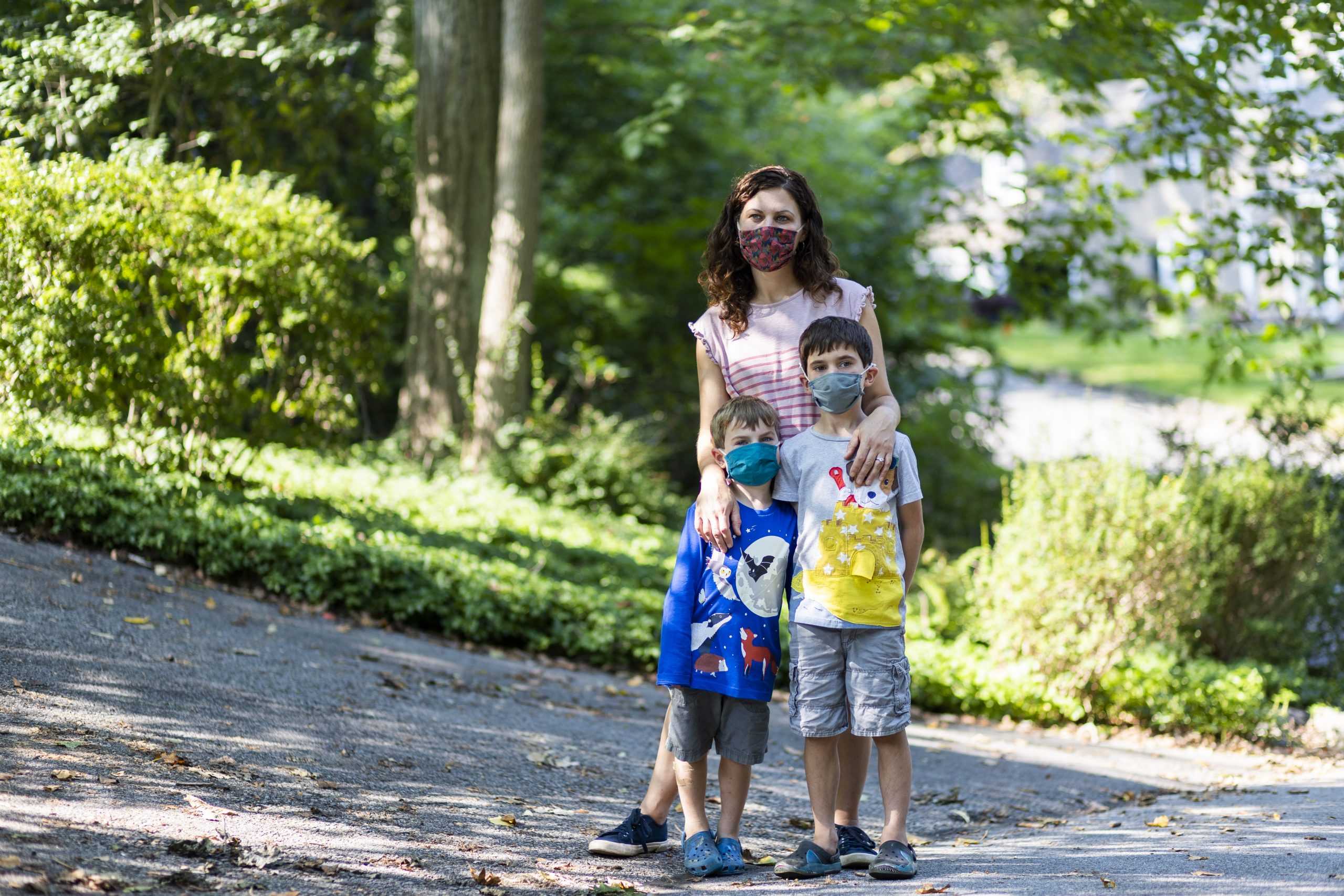Laura Crispin, Ph.D., associate professor of economics, sent her 5 year-old daughter to kindergarten for the first time last week. Crispin said she is remaining optimistic about the upcoming year of face-to-face learning during a pandemic, but she’s maintaining a level of caution.
“I’m a little anxious about it as any parent would be, but on the whole, I’m feeling pretty good about it,” Crispin said. “At this point, I definitely feel like the benefits of her being in person, in class, being around other kids, learning from a professional who’s trained to teach young kids, outweighs the potential risk, at least for my family.”
For many members of the St. Joe’s community who are raising children under the age of 12, the start of the school year, both their own and their children’s, has brought an extra layer of concern. The Centers for Disease Control and Prevention (CDC) has not yet approved COVID-19 vaccines for children under 12. Some medical experts predict that approval may come some time later this fall or winter.
Elizabeth Morgan, Ph.D., associate professor of music, theatre and film, said she is also happy that her two sons, ages 5 and 8, were able to start school in person this fall. But she is worried about the Delta variant, which, according to the CDC, is more contagious than earlier forms of the virus and is the most prominent strain of COVID-19 in the U.S. right now.
“I’m happy for my kids, but I have anxiety, and I think probably a lot of people do,” Morgan said. “It’s so frustrating because we thought we were turning a corner and then Delta came along.”
Even though the university has reported that more than 90% of the St. Joe’s community is vaccinated, some faculty with unvaccinated children at home said they have reminded their students that their families remain vulnerable.
“I reiterated to my students, I do have a child that’s not yet vaccine age,” Crispin said. “And so if you bring something to campus, to class, and I get it and bring it home to her, that’s a concern for me.”
Bill Wolff, Ph.D., associate professor of communication and media studies, who has two sons, 8 and 10, said St. Joe’s students being vaccinated and wearing masks makes him feel more comfortable on campus. But what students may do off campus brings the risk, Wolff said.
“Everybody might not be following safe protocols off campus, and then they’re bringing those behaviors onto campus unintentionally,” Wolff said.
Morgan Bryant, Ph.D., assistant professor of marketing, said even though her 13-year-old sixth grader was vaccinated this summer, that only partially eased her concerns.
“Sixth grade tends to be the largest grade out of the middle school grades, so there is a large population of students in the school who are unvaccinated,” Bryant said. “Not to mention, there could be students who are in seventh and eighth grade who are old enough to be vaccinated [but] who may have siblings who are younger who are unvaccinated. My child will now be entering a building every day where there’s a portion, easily a third, of the student population that is not eligible to be vaccinated.”
One of the concerns some faculty have voiced is what to do if COVID-19 outbreaks occur in their children’s schools, forcing the faculty to quarantine at home with their children. Those outbreaks are occurring nationwide as children return to school.
James Carter, Ph.D., interim dean of the College of Arts and Sciences (CAS), said in an email to CAS faculty on Aug. 20, “situations may arise where a faculty member needs to be out of the classroom for very specific reasons and a finite but significant period of time. This might include, e.g., the parent of a young child who is isolated from school and/or childcare because of exposure or illness. In cases like this, I will work with the faculty member to approve ‘flipping’ the class online, temporarily.”
Morgan said she found this message from Carter to be reassuring. She said her request to teach completely online last semester based on child care needs was denied.
“I put my reason down as the uncertainty of my children’s situation because at that time, they were not going back to school in person,” Morgan said. “They were just gonna be home so it was really complicated. That’s a huge balancing act right to figure out… [but] the university did not grant any requests to teach remotely based on childcare needs.”
Bryant said she did not receive any messages from administrators in the Haub School of Business addressing needs specific to faculty with school-aged children, so she is following university guidelines.
“We are encouraged to follow the university protocol for notification,” Bryant said. “If my son needed to be quarantined, naturally I would be identified as a close contact, so I would have to report accordingly.”
For now, faculty like Brian Yates, Ph.D., assistant professor of history, whose son is 7 and in person for school this fall, are trying to balance taking precautions to protect themselves and their children and living life.
“I’m just having faith in both me and my wife being vaccinated and then just praying, hoping, that things work out,” Yates said.













































